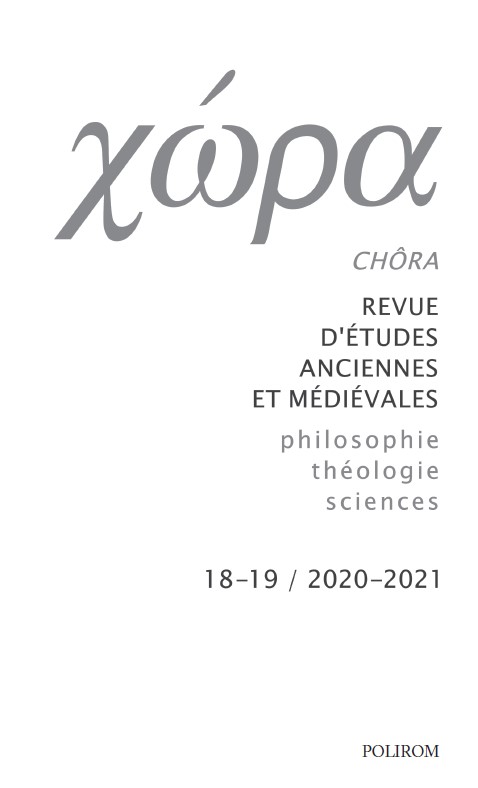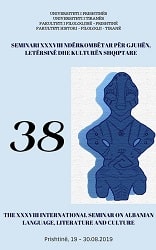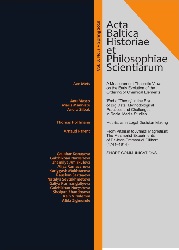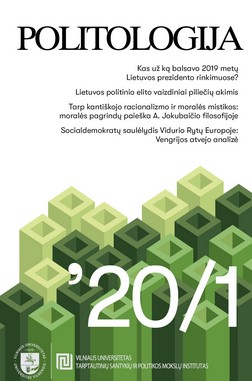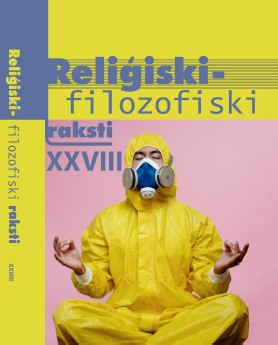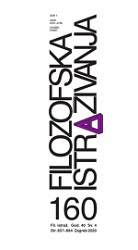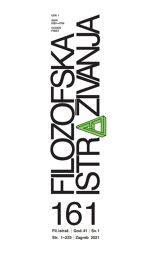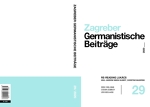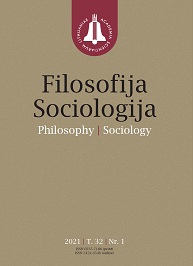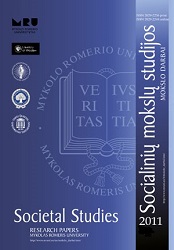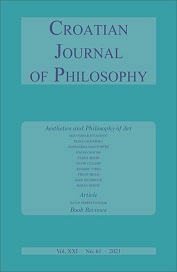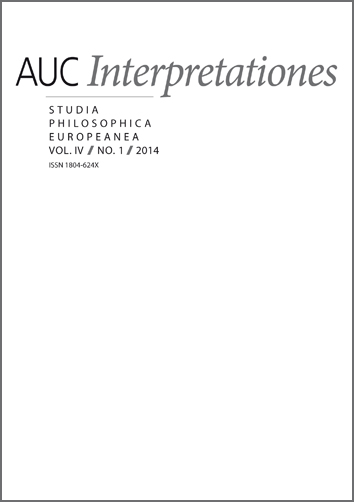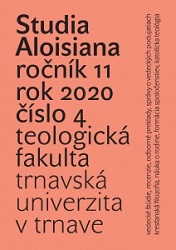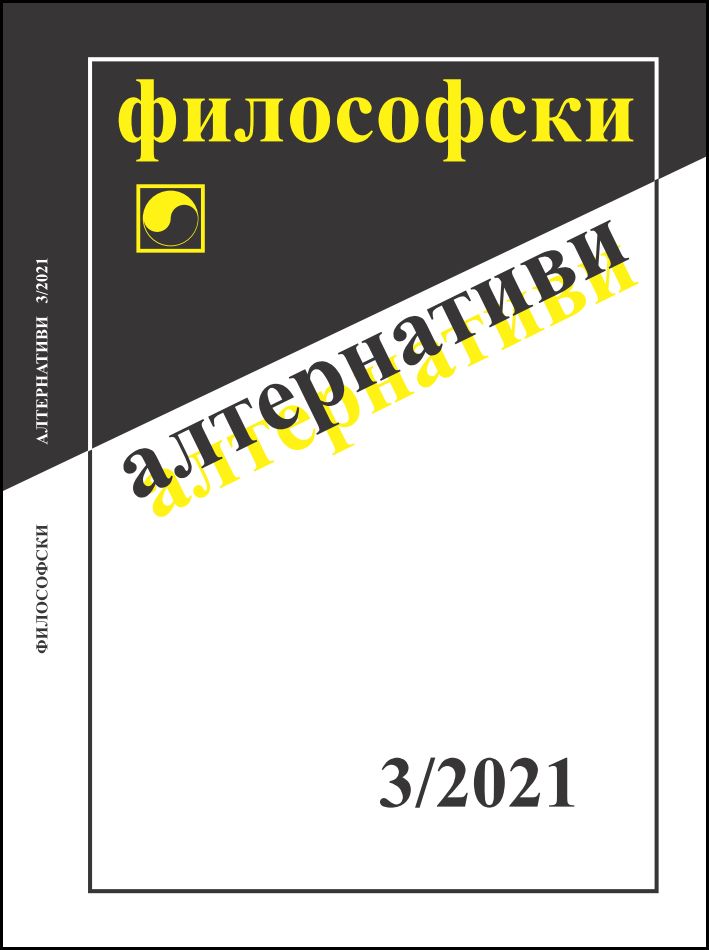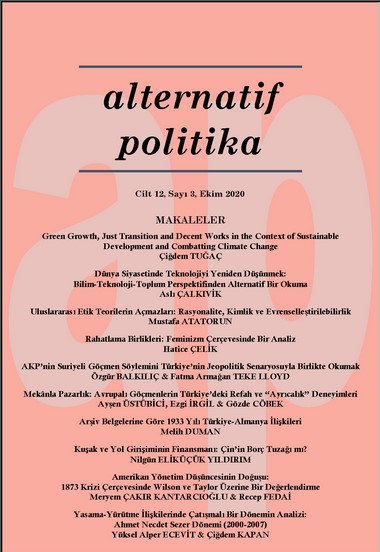Author(s): Igor Mikecin / Language(s): Croatian
Issue: 01/161/2021
Gemäß der Dreiteilung des Hegelschen Systems in Logik, Philosophie der Natur und Philosophie des Geistes gliedert sich auch Hegels Begriff der Freiheit. Die Freiheit ist in der Logik die Freiheit des Begriffs selbst, der sich von den Bestimmungen der Seinslogik und der Wesenslogik für die Bestimmungen der Begriffslogik befreit. Der Begriff gelangt zu seiner Freiheit in der absoluten Idee, die nichts anderes als die Idee der Freiheit ist. Auf dem logischen Freiheitsbegriff gründet die Freiheit, wie sie in der Philosophie des Geistes auf allen Stufen der Entwicklung des Geistes begriffen wird. In der Philosophie der Natur aber wird die Natur als die Negation der Freiheit und als notwendige Vermittlung der Idee der Freiheit im Fortgang ihrer Verwirklichung aufgefasst. In der Philosophie des Geistes stellt sich heraus, dass die Freiheit das Wesen des Geistes ist. Das Selbstbewusstsein des Geistes erscheint zuerst im subjektiven Geist, der sich aus der Natur befreit. Die weitere Verwirklichung des Geistes geschieht durch den objektiven Geist, der sich im abstrakten Recht, in der Moralität und Sittlichkeit objektiviert. In der Weltgeschichte, welche die letzte Bestimmung des objektiven Geistes ist, wird der Geist als der Fortschritt im Bewusstsein der Freiheit verwirklicht. Im Bereich des objektiven Geistes wird die Freiheit als die Freiheit des Willens begriffen. Der Wille ist dabei kein Substrat der Freiheit, und die Freiheit ist keine bloße Eigenschaft des Willens, sondern sie ist die Substanz oder das Wesen des Willens. Gemäß der Gliederung des objektiven Geistes in das abstrakte Recht, die Moralität und die Sittlichkeit entwickelt sich die anfängliche abstrakte Freiheit zur immer konkreteren Freiheit. Das abstrakte Recht, die Moralität und die Sittlichkeit sind die Stufen der einheitlichen Entwicklung und Verwirklichung der Freiheit. Während der subjektive Geist nur die subjektive Freiheit als die Freiheit der Wahl von unmittelbar gegebenen Inhalten und Zwecken (der unmittelbare oder natürliche Wille) hat, eignet dem objektiven Geiste die formale Freiheit des persönlichen Willens (das Recht), die formale Freiheit des autonomen subjektiven Willens (die Moralität) und schließlich die substantiale Freiheit des substantialen Willens (die Sittlichkeit). Am Ende der Sittlichkeit aber bleibt noch die Unfreiheit übrig, welche der objektive Geist als solcher nicht überwinden kann. Die Freiheit ist auf der Stufe des objektiven Geistes immer noch begrenzt, denn sie erscheint in ihm als die Willensfreiheit. Die Freiheit als das Wesen des Geistes kommt zum Bewusstsein erst dann, wenn das Absolute als der absolute Geist in der Kunst, Religion und Philosophie bewusst wird. Jede von drei Gestalten des absoluten Geistes überwindet auf ihre Weise die Willensfreiheit, aber unter ihnen ist die Philosophie die freieste Gestalt des Geistes. In der Philosophie als der absoluten Wissenschaft wird die höchste Gestalt des Selbstbewusstseins des Geistes erreicht, bzw. die vollkommene Bewusstwerdung der Freiheit als seines Wesens. Dabei hat jede Stufe der Verwirklichung der Freiheit vom subjektiven über den objektiven zum absoluten Geist ihren notwendigen Ort und alle sind in das Ganze der notwendigen Momente des Systems vereinigt. Durch die Philosophie wird der Geist für seine Freiheit als sein Wesen vollkommen befreit. Er ist als das Zurückkehren zu sich selbst aus seinem Anderen bestimmt, so dass er schließlich alle Äußerlichkeit aufhebt, bzw. sie in seine Innerlichkeit aufnimmt, und dessen bewusst wird, dass das Andere von ihm nicht von ihm getrennt ist, sondern sein Anderssein ist. Vor aller Willensfreiheit, sei es Freiheit der Wahl, moralische Freiheit oder sittliche Freiheit, ist die Freiheit das Wesen des Geistes, und zwar die Selbstbestimmung, die keiner äußerlichen Bestimmung unterliegt: bei sich sein im Anderen seiner selbst, bzw. das Selbstverhältnis durch das Verhältnis zum Anderen als dem eigenen Anderen. Die Philosophie ist als die Wissenschaft des Absoluten zugleich die Wissenschaft der Freiheit. Durch die Freiheit kehrt sich das Absolute als die absolute Idee aus seinem An-sich-Sein frei in die Natur als in sein Anderssein um, kehrt im Geiste zu sich selbst zurück und offenbart sich in seiner Wahrheit als der absolute Geist. Die absolute Idee ist nichts anderes als der an sich seiende Geist, und das Absolute ist nach seiner höchsten Bestimmung der absolut selbstbewusste Geist. Die absolute Wissenschaft als die höchste Gestalt des absoluten Geistes ist das absolute Selbstbewusstsein des Absoluten selbst. Dass die Philosophie die Wissenschaft der Freiheit ist, bedeutet nicht nur, dass die Freiheit der Gegenstand der Philosophie ist, sondern auch, dass die Freiheit selbst durch die Philosophie in ihrer Wahrheit verwirklicht wird. Die Wahrheit der Freiheit ist, dass die Freiheit das Wesen des Absoluten ist. Das zu seiner Wahrheit befreite Absolute ist der absolute Geist.
More...
